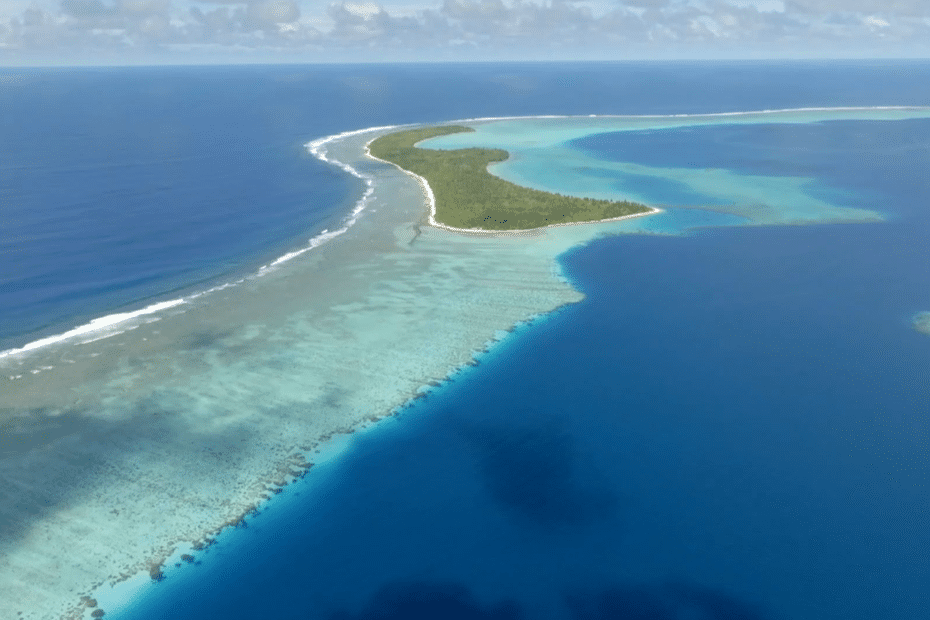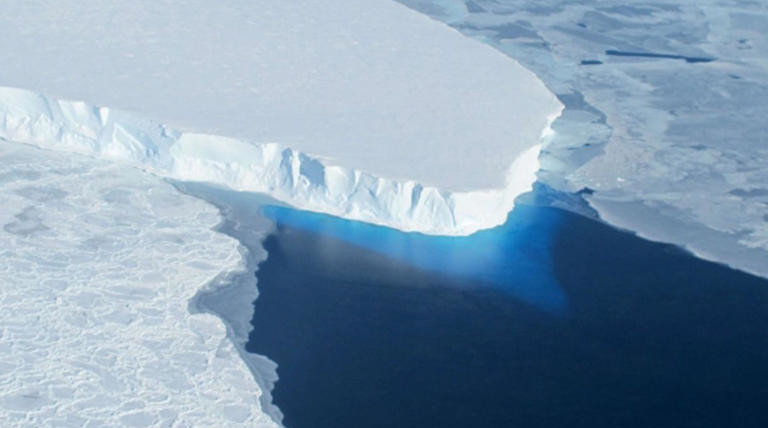The documentary “Wallis and Futuna, on the borders of the sea” highlights the concerns of a people whose fishing resources are running out, but who must also find solutions to preserve their marine environment and ensure their economic development. A captivating exploration of the issues facing this South Pacific archipelago.
Developing the maritime economy while guaranteeing the protection of the marine environment is therefore a major challenge. The archipelago must create jobs, encourage young people to stay on the island, preserve the future sovereignty of the territory and, thus, perpetuate its identity and its culture of the sea.

Wallis and Futuna, on the borders of the sea
Photos taken from the documentary “Wallis and Futuna, on the borders of the sea” • ©Grand Angle Productions
Customary power engaged in the preservation of the lagoon
But this growth cannot be to the detriment of nature, biodiversity and the riches of the sea. So, fishermen, traditional chiefs, teachers, ocean enthusiasts, from the youngest to the oldest, have decided to engage to imagine the best conditions for future exploitation of their lagoon, the open sea, islets and the seabed.
Customary power in Wallis and Futuna is really what organizes social life. The land on which they walk, the land they cultivate, the sea in which they go fishing, all this space is one.
Valelia Muni Toke, anthropologist
Regulation of samples from the lagoon, training in new offshore fishing techniques, data collection on fishery resources and creation of a marine protected area. On Uvéa, the main island of Wallis, there is no shortage of ideas for fishermen, guarantors of food autonomy, to try to democratize sustainable fishing, without hindering traditional fishing freedoms.
The essential role of fishing
According to the annual report of the Coastal Fisheries Observatory in the archipelago, subsistence fishing, practiced mainly to meet household food needs, represents, in 2022, 70% of total production in Wallis and 92% in Futuna. As for professional fishing, which aims to generate income through the sale or exchange of products from fishing, it represents 43 tonnes in Wallis and Futuna out of the 204 tonnes of total production (producers and professionals) .
Coveted underwater resources
Certain sea exploitation projects raise questions. Like those in the mining industry, which in the past has already taken a close interest in the rare minerals discovered in the deep seas of Futuna. But the kings and customary representatives of the island blocked these projects, with the wish to preserve sovereignty and customary prerogative over the land and under the sea.
Emergence of tourism
The archipelago plans to develop tourism in the lagoon, and in particular on the islets, which constitute a treasure for the sector. But the challenge is significant: isolation is both an advantage and a disadvantage. Furthermore, the families, owners of the islets, must agree to embark on the path of “green” tourism.
Preserve the link to the sea
Isolated, without real industry or tourism, Wallis and Futuna is still protected from the actions of men. The reefs and corals are still healthy. But the future is uncertain, and we must raise awareness among future generations to guarantee the sustainability of the riches of the ocean and all that it embodies: a heritage, a culture, an identity, and also a certain form of sovereignty.




